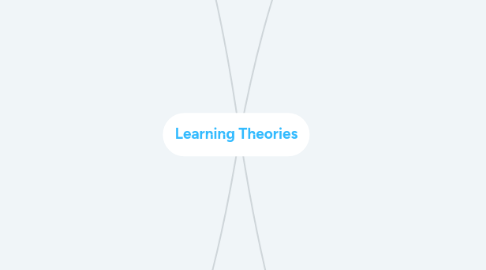
1. Social Constructivism
1.1. Learner centered
1.2. L. Vygotsky
1.2.1. Zone of proximal development
1.3. J. Bruner
1.3.1. Learning as active process
1.4. Student Learns through
1.4.1. Construction of knowledge
1.4.2. socialising
1.4.3. self lead
1.5. My role as teacher
1.5.1. Participative sessions
1.5.2. Motivating learning in group
1.5.3. Facilitator
1.5.4. Goal is to have learning for life time
1.5.5. Examples
1.5.5.1. Group discussion
1.5.5.2. Group tasks
1.5.6. My reflection
1.5.6.1. Best for higher education
1.5.6.2. Required for connectivism
2. Connectivism
2.1. Digital age learning
2.2. Learning as creative process
2.3. Students learn through
2.3.1. informal
2.3.2. network
2.3.3. technology enabled environment
2.3.4. Connecting information
2.3.5. desire to learn more
2.3.6. decision making
2.4. My role as teacher
2.4.1. nurture the connections
2.4.1.1. fields
2.4.1.2. People
2.4.1.3. organisations
2.4.2. trust on students ability to learn
2.4.2.1. motivate creativity & innovation
2.4.2.2. learning for discovery
2.4.2.3. self attainment for students
2.4.3. examples
2.4.3.1. course work
2.4.3.2. emails
2.4.3.3. discussion forum
2.4.3.4. blogs referencing
2.4.3.5. You tube videos
2.4.4. My reflection
2.4.4.1. Bang on!!!!
2.4.4.2. Most suitable
3. Behaviorist
3.1. Classic Pavlov Dog
3.2. Students learn through
3.2.1. Practice
3.2.2. Reshaping what they learned
3.2.3. Positive experience
3.3. Teaching Practice
3.3.1. Programmed set of instructions
3.3.1.1. Canvas with lecture notes and instruction on weekly activities
3.3.2. Absolute knowledge
3.3.2.1. Weekly teaching schedules & practice work
3.3.3. Predefined and supervisory
3.3.3.1. Set of rubrics with expected minimum performance
3.3.4. My role as teacher
3.3.4.1. Learning observed by change in behavior
3.3.4.2. Learning attributed internally
3.3.5. Examples
3.3.5.1. f2f and online quizzes
3.3.5.2. Formal Examination
3.3.5.2.1. Facts and figures
3.3.5.2.2. Concepts
3.3.5.2.3. skills
3.3.5.3. Reward System
3.3.5.4. Drills and practice
3.3.6. My Reflection
3.3.6.1. Foundation approach
3.3.6.2. To create interest in learning
4. Cognitivism
4.1. Based on Piaget
4.1.1. Sensory memory
4.1.2. Working memory
4.1.3. Long term memory
4.2. Cognitivists
4.3. J. Anderson
4.3.1. Declarative
4.3.2. Procedural
4.4. Student learns through
4.4.1. Mental processing
4.4.2. Strategies for information processing
4.5. My role as teacher
4.5.1. Attain and maintain learners attention
4.5.2. Be model for learning
4.5.3. Goal is to change mental behavior
4.5.4. Examples
4.5.4.1. Rehearsals (Practical applications)
4.5.4.2. Visuals (Videos/presentations)
4.5.4.3. Repetition (Practice)
4.5.4.4. Review and summary
4.5.4.5. Real life case studies
4.5.5. My Reflection
4.5.5.1. Important tool to grow
4.5.5.2. Result of Behaviorism
